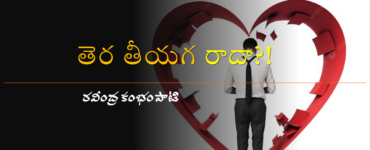Born in a small village in the northern part of Bihar, Abdullah Khan always wanted to be a story teller. And, in the early 1990s when he discovered that the famous English, George Orwell, was born in his home district, Motihari, he decided to take up the creative writing seriously and started to write for newspapers and magazines. He started working on his first novel in 1997 and took more than 10 years to complete it. And, after struggling for almost a decade, his debut novel PATNA BLUES was published and is now being translated into more a dozen languages. Recently, Telugu translation has been brought out by a Hyderabad Publisher. Abdullah Khan’s day job is as a banker.
Congratulations on the Telugu launch of Patna Blues. This marks the thirteenth language it got translated into. How is the response?
I am lucky to get very good responses from the media as well as the readers. I am getting many messages on my social media accounts appreciating the work. I always believed that this story has a universal appeal. Telugu readers are proving me right again. Tamil edition is also doing really well. A chapter from Patna Blues has been included in the English graduation courses of Kerala university. Apart from the 13 languages it got into many more translation offers are in the pipeline. The US and the UK Publishers are also showing interest in the novel. Three big names from Bollywood are in touch with me for the possible screen adaptation rights.
Where did all this start? What made you a writer? What were the key influences?
Since childhood, I was very fond of stories and used to pester my mother, grand mother and other relatives for the stories. When I was around 8 years of age I discovered the story books. I decided to become a writer at very young age. In 1990 when I discovered that George Orwell was born in my home district my desire to become a writer got very intense. I started writing for newspapers and magazines while pursuing my BSc in Patna. I was influenced by most Indian authors like Amit chaudhari, Vikram Seth, Rohinton mistry, Phanishwar Nath Renu and Premchand.
If I divide literature into commercial or popular literature and identity based literature, Patna Blues is probably one of those very few books that can be described as a bridge between these two forms. How did you achieve that?
My idea was always to tell a good story that sounds as real as possible. At the same time I also wanted to make it engaging. There is no formula or any special ingredients that made this possible. I really liked my story and its characters. All I did was to transform my idea and my thoughts into words as honest as possible. I am happy that my story is appealing to both the readers of literary fiction as well as commercial novels.
How was your experience with publishers?
After finishing my novel in 2009 I approached mostly foreign publishers and agents. I had to collect more than 200 rejections. The reason for rejection was the context and setting of the novel. They felt that no one would be interested in reading stories about small town and rural Bihar. After a struggle of more than 9 years the book was finally accepted and published by juggernaut books of Chiki Sarkar.
How do you find Muslim voice in Indian literature? Particularly in Hindi literature how strong is the Muslim literature as compared to other identity literature like feminist literature, dalit literature?
I am familiar with English and Hindi literature but I hardly find any strong names that represent the Muslim identity in literature. As far as Bihar is concerned there are not many Muslim writers. In fact I cannot draw a parallel and see a Bihari equivalent of Telugu Muslim literature. There are many Muslim writers but what they write may not be identity literature. Interestingly the first Indian to write a book in English was a Bihari Muslim, Dean Mahomet, who wrote a book of nonfiction way back in in 18th century.
What is your next book all about?
I have just completed my second novel with a working title – “A Man from Motihari”. It is a story about a boy call Aslam who was born in an abandoned house. It is in the same house, many years ago, the Great British writer George Orwell was born. When Aslam comes to know about this, he decides to become a writer himself. During the course of time Aslam begins to believe that there is some super natural connection between him and George Orwell. The story is set in India and the US. The backdrop is the contemporary events that are taking place in India and in the US right now. I have submitted first draft to my agent in New York and she is trying to find a publisher. If that works out the book will be published from the US.
*









Add comment